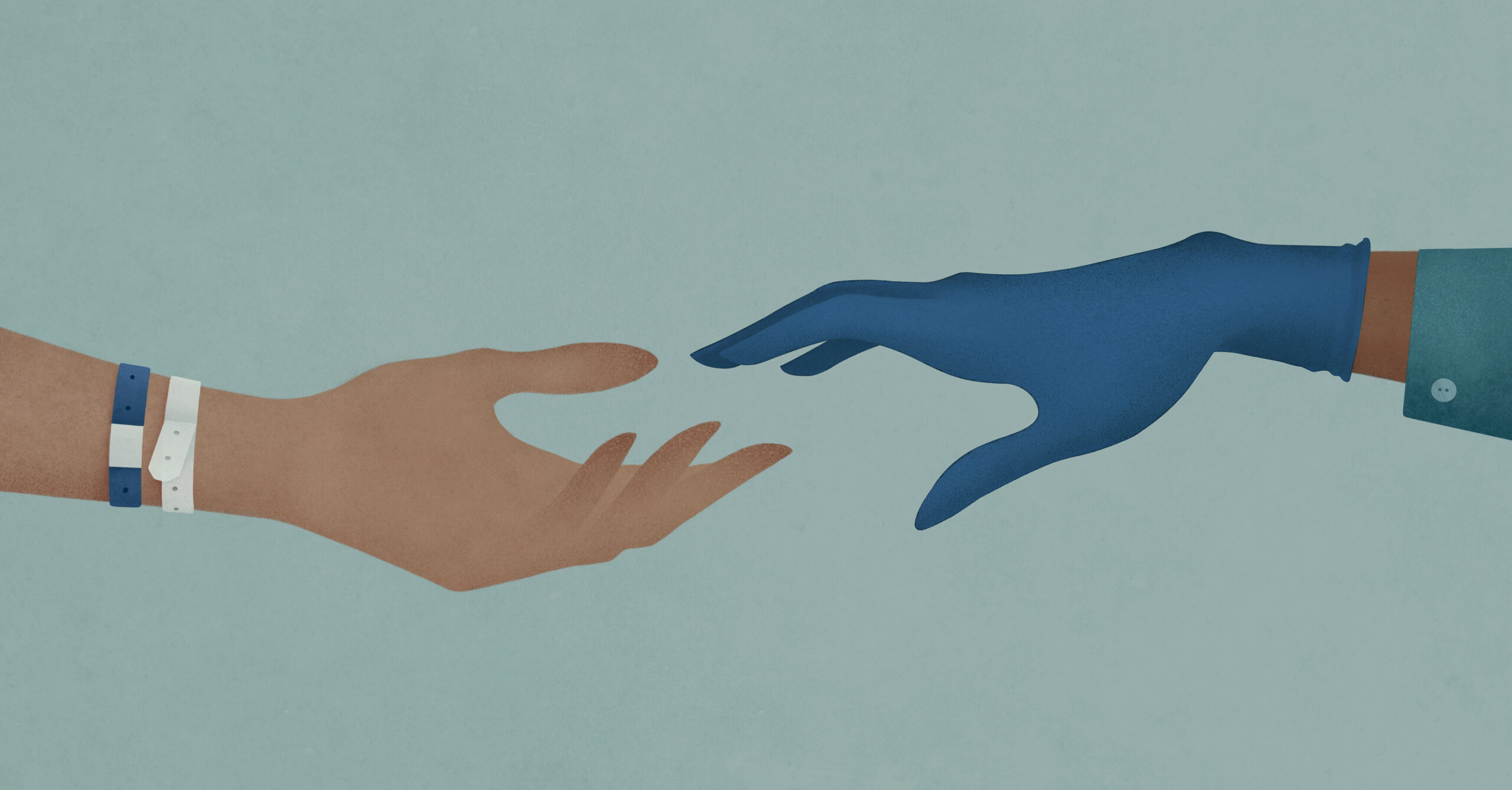- More than any specific therapy or intervention, holistic health refers to a range of products and practices that focus on the mind and the body
- Holistic health is a legitimate specialty that’s now formally recognized, as evidence of the connection between mental and physical conditions continues to grow
- No need to worry whether interventions complement the more traditional care we’re used to giving—they definitely do
- We know alternative therapies aren’t a silver bullet, but they do have the potential to help us in the battle against burnout–and stay accountable for taking care of ourselves
“I’m that last stop. Nurses are so stressed out and ready to just walk away from the practice and the discipline by the time they see me, which breaks my heart. That is so much knowledge and so much talent being lost, because nurses are just overstressed and overworked.”
That’s Julie Bryant, nurse care manager for the in-home care company Landmark Health and passionate holistic health practitioner. She recently spoke with SHIFT about her experience helping nurses fight burnout with holistic care practices like reflexology and acupuncture.
Let’s start at the beginning—with a definition
Holistic health is a broad term that encompasses many different products and practices and generally refers to the acknowledgement that our health is more than just our physical conditions. Some holistic health practices are referred to as complementary and alternative modalities (CAM), integrative therapy or alternative medicine. But ultimately, regardless of the specific label we use, what we’re referring to when we talk about holistic health are the treatments that fall outside of traditional Western medicine and that look at the whole body instead of focusing on a single body part or system.
“Holistic health is an integration of everything about a person–body, mind, spirit,” Julie told us. “We’re not all one-size-fits-all, nor should medicine be. Holistic and complementary therapies bring together different things to accomplish a greater good.”
If you go to a traditional provider for help with migraine headaches, for example, he or she would talk through triggers, potentially order an MRI, and give you some options for preventive medications. These are all important diagnostic tools and treatments. A holistic practitioner will also might incorporate things such as supplements, aromatherapy, or massage.
It’s OK, you can ask: Is holistic healthcare legit?
Julie’s the first to admit that 15 years ago, holistic care seemed a little, in her words, “like snake medicine.” But over the years, she’s seen both nurses and patients alike embrace a variety of alternative treatments because of the benefits they provide, such as improved symptoms or reduced stress.
Nearly 40 percent of adults in this country use some form of complementary medicine, according to the National Institutes of Health. This number has been steadily growing, with Americans today collectively spending more than $30 billion annually on these health products and practices.
In fact, when we nurses shed our scrubs, many of us intuitively lean on holistic health care practices without even consciously thinking about it. Supplements, yoga, and meditation are all examples of common holistic practices, not to mention herbal medicine, acupuncture, reflexology, meditation, chiropractic care, massage, aromatherapy, hypnosis, and Tai Chi.
But if you’re asking whether holistic health is recognized by the medical community, the answer is still a resounding yes, SHIFT Talkers. Holistic nursing was actually formally recognized as a specialty in 2006, complete with a defined scope and standards of practice. Today the American Holistic Nursing Association currently has more than 5,500 members.
“I’ve been in holistic medicine almost my whole career. There weren’t many of us out there, but we’ve been fighting for a long time for that integrated solution,” Julie said.
Holistic care complements traditional medicine
As Julie explains, “There’s a place for everything. If I get hit by a car, I’m going to the ER. But If I’ve got a lot of stress, I’m wearing myself down, I might go see a holistic health practitioner.”
There’s no doubt that stress, anxiety, and other lifestyle issues can have a substantial impact on our physical health. We see this in our patients every day. The environments our patients live in–their homes, their jobs, their diets, their finances–typically have a far greater impact on their health than any single intervention we can provide.
This recognition that all the experiences you have in your day-to-day life shape your ability to stay well is driving many caregivers further toward whole body health.
And that got us thinking, SHIFT Talkers.
When it comes to our own health, are we missing the forest for the trees? If our higher rates of chronic conditions like migraines, or mental health conditions like anxiety and depression, are symptoms themselves, should we be looking at the bigger picture when it comes to healing?
When burnout takes a toll on the body and the mind, the solution must go holistic, too
While there is no silver bullet for the challenges that nurses face on the floor and off the clock, can a holistic approach to wellness provide another set of tools for nurses to cope? Julie knows that it can because she treats these nurses every day, normally for stress-related conditions.
“They’re so stressed out, they’re looking for a way out, and that’s really sad,” she said. “They’re being pushed to take more patients, or higher-acuity patients, or longer shifts.”
Part of the benefit of seeing a holistic health practitioner is putting a commitment to self-care into practice, Julie says. It’s easy to say we’ll meditate, or exercise, or write in a journal, but before we know it, the day’s gone, we haven’t taken care of ourselves, and the next shift will be here before we know it.
“If [a nurse] make[s] an appointment, they’re more accountable to me,” Julie said. “They’re more accountable to themselves. We’re always putting ourselves last but taking care of yourself is taking care of your patients and your family.”
Research is clear when it comes to the impact stress has on our wellbeing. The Mayo Clinic outlines common effects of stress on the body, on the mind, and on our behavior, including tension, anxiety, substance abuse, fatigue, sadness, and anger, and it’s well-established that nurses experience these symptoms of burnout at higher rates than other professions. And while research is still limited, results do indicate that a holistic approach can reduce stress, anxiety, depression, and improve well-being.
As the U.S. health care system as a whole embraces more integration of mind and body, nurses can and probably should add holistic health practices to our toolboxes–not just for our patients, but for ourselves.


